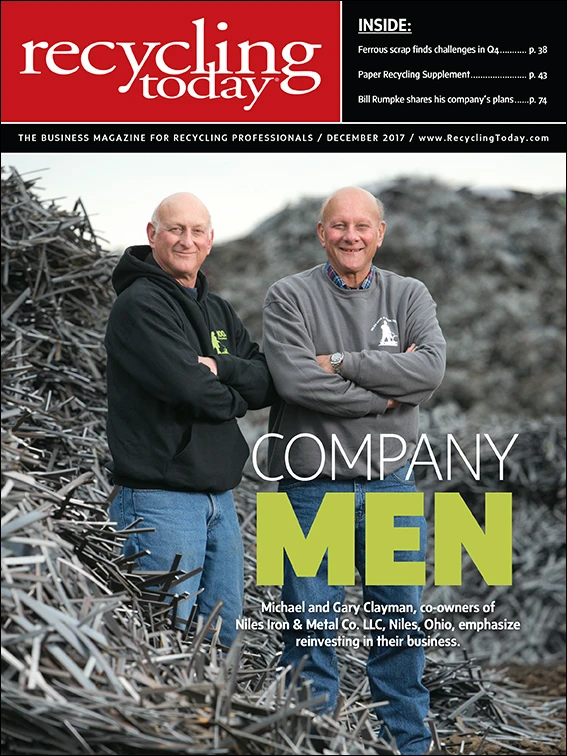Nongovernmental organizations (NGOs) around the world are sending a message that the best way to control plastic litter is to cut back on the use of plastic packaging. That growing sentiment ultimately could mean less material is available to plastic recyclers, according to presenters at the 2017 Paper & Plastics Recycling Conference Europe, held in Warsaw, Poland, in early November.
Mike Baxter of U.K.-based RPC bpi Group urged attendees to begin paying more attention to the media’s coverage of plastic’s role in the environment. He characterized such coverage in the U.K. as

More than 90 NGOs have created an alliance housed at www.breakfreefromplastic.org that aims to hold corporate boards of directors responsible for using plastic packaging that creates litter on land or in the world’s oceans, he said.
Baxter’s call to action included a reminder that the material’s lightweight properties save fuel or energy in almost all of its applications, often making it “the best environmental option,” a message he said policymakers must communicate.
Baxter said trade associations throughout Europe have been “making regular visits” to national and EU legislators, “but we can’t leave it only to the trade associations,” he added, urging CEOs and other executives t0 get involved.
While also noting that critics, including some corporate CEOs, have been bashing plastic, Edward Kosior of London-based Nextek said his firm has been involved in several projects intended to increase the plastic recycling rate.
“It’s out the door before I even have it ground and processed.” – a reprocessor based in the Midwest concerning recycled PE demand
Kosior said many of plastic’s recyclability problems stem from product design that incorporates multiple materials (such as metal springs or paper labels) and multiple layers of different plastics.
He said Nextek has been involved in one major project involving Procter & Gamble, which he described as “a new type of [plastic] recycling that hasn’t been tried before.” The PureCycle project in Ohio has been designed to increase the recycling of polypropylene (PP) packaging. The process uses a solvent to accomplish recycling “at the molecular level.” (For more on this technology, visit www.RecyclingToday.com/article/polypropylene-recycling-game-changing-innovation.)
Regarding recycled PP demand in the U.S., a reprocessor based in the Midwest says lower melt flow material was experiencing sluggish movement, while PP with a higher melt flow index (20 and above) was “moving fairly steadily.”
The reprocessor says he’s having a hard time keeping recycled polyethylene (PE) in stock. “It’s out the door before I even have it ground and processed.” Demand for injection molded PE was especially healthy, the
He says brokers have been reaching out to his company more frequently as they try to find homes for scrap that normally would have gone to China before the country started cracking down on plastic scrap imports at the start of the year. However, the reprocessor says this is material his company is not interested in processing.
He says his company has experienced elevated transportation costs and has struggled to book trucks because of the hurricane recovery efforts, but he is hopeful that will change soon. “Winter will slow things down and work it back out,” the reprocessor says.

Explore the December 2017 Issue
Check out more from this issue and find your next story to read.
Latest from Recycling Today
- Athens Services terminates contract with San Marino, California
- Partners develop specialty response vehicles for LIB fires
- Sonoco cites OCC shortage for price hike in Europe
- British Steel mill’s future up in the air
- Tomra applies GAINnext AI technology to upgrade wrought aluminum scrap
- Redwood Materials partners with Isuzu Commercial Truck
- The push for more supply
- ReMA PSI Chapter adds 7 members





